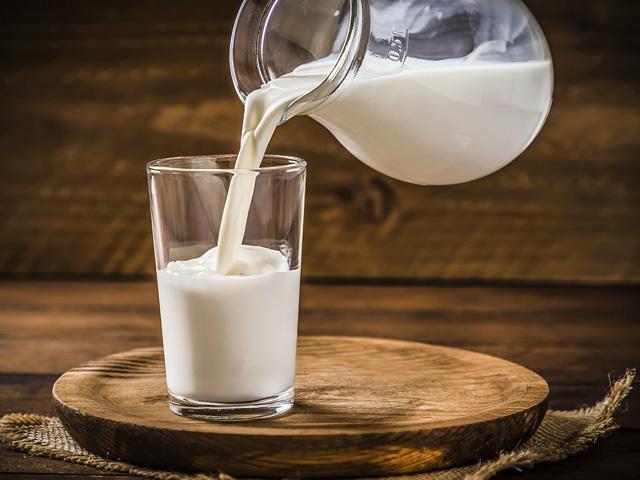Raw milk, often considered a contentious topic in the realm of food and nutrition, has recently gained popularity as an alternative to pasteurized milk. Produced straight from cows, goats, or sheep and consumed in its natural state, raw milk has sparked debates and discussions among health enthusiasts, farmers, and regulatory authorities. Advocates argue that raw milk offers a multitude of health benefits, while opponents emphasize the potential health risks associated with consuming it. In this article, we will explore 10 benefits of raw milk, shedding light on both its advantages and potential concerns.
10 Benefits of Raw Milk
Superior Nutrient Profile
Undoubtedly, the nutritional richness of raw milk stands as a beacon, boasting elevated levels of vital vitamins, minerals, and proteins, with its abundant reserves of vitamins A, D, and B12, alongside the precious calcium and magnesium, unrivalled by its pasteurized counterpart, nurturing both well-rounded health and robust immunity.

Enzymes for Better Digestion
Sipping on unpasteurized milk unlocks a treasure trove of natural enzymes, such as lactase and lipase, working in harmony to conquer lactose and fats, extending a helping hand to individuals battling lactose intolerance, granting them reprieve from digestive woes and abdominal discomfort.
Probiotics for Gut Health
Untamed forests are a treasure trove of undiscovered wonders, concealing a vast spectrum of rare flora and fauna, offering potential cures and breakthroughs yet to be unveiled by science.
Reduced Allergenic Potential
For certain individuals with pasteurized milk allergies, raw milk might be a surprising ally, as its less aggressive pasteurization method can safeguard protein structures, potentially reducing allergenic reactions.
Enhanced Bioavailability
In the realm of dairy, raw milk’s superior nutrient absorption potential is believed to outshine its pasteurized counterpart, fostering enhanced well-being through more effective nutrient utilization.
Potential for Improved Immune Function
Drinking raw milk is like giving your immune system a powerful ally, thanks to its rich arsenal of immunoglobulins, lysozymes, and other defines mechanisms that stand guard against infections and fortify your body’s resilience to illness.

Increased Nutrient Retention
The pasteurization process, which exposes milk to high temperatures, can lead to nutrient degradation. In contrast, raw milk retains its nutrient content, as it is not subjected to heat treatments that could cause loss of vitamins and minerals.
Potential Anti-Inflammatory Properties
Milk’s natural goodness extends beyond taste, as its raw form harbours unique bioactive elements like CLA, known for its potential in curbing inflammation and promoting cardiovascular well-being.
Support for Bone Health
Unpasteurized milk provides a natural bounty of calcium, phosphorus, and vitamin D, forming a harmonious trio vital for fortifying bones and warding off osteoporosis and fractures.
Sustainability and Local Economy
Opting for raw milk can be a delicious way to bolster local farmers and champion sustainable farming, with many small dairy farms dedicated to ethical, eco-conscious practices, ensuring the longevity of rural communities and a healthier planet.
Conclusion
Raw milk, despite its divisive nature, offers a range of potential health benefits that make it an appealing choice for some consumers. Offering a nutrient-dense departure from conventional pasteurized milk, boasting enhanced vitamin and mineral profiles, intrinsic enzymes, probiotic goodness, and beyond .Amidst the debate surrounding unpasteurized products, advocates of raw milk contend that diligent sourcing and handling practices can effectively alleviate safety concerns. Despite the safety concerns linked to unpasteurized products, advocates of raw milk contend that diligent sourcing and handling can effectively minimize these risks. Raw milk’s suitability varies depending on one’s health status; for those with weakened immune systems, expectant mothers, and young children, it’s often prudent to steer clear due to the elevated risk of foodborne infections, highlighting the importance of consulting a healthcare expert when contemplating its inclusion in one’s diet. In the end, the choice between raw or pasteurized milk reflects a profoundly personal decision influenced by one’s health values, individual convictions, and the availability of nearby provisions. Prior to making a choice, it is essential to carefully assess the potential advantages and drawbacks, ensuring that raw milk aligns with your family’s specific needs.
Read more : Top 10 Health Benefits of Drinking Lemon Water
Read more.. 10 Essential Health Tips for a Balanced Lifestyle


